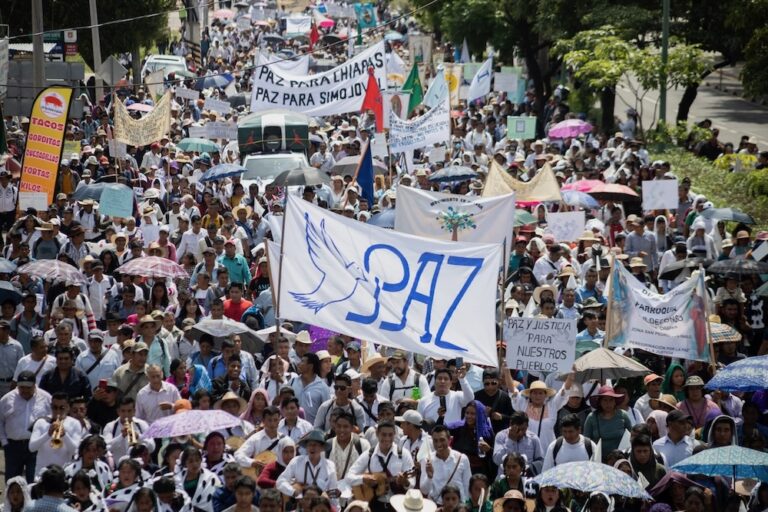(AMARC/IFEX) – The following is an abridged version of a 12 December 2005 AMARC press release: AMARC criticizes new radio and television law as an attack on freedom of expression AMARC and the Mexican Commission for the Defence and Promotion of Human Rights (Comisión Mexicana de Defensa y Promoción de los Derechos Humanos) condemn the […]
(AMARC/IFEX) – The following is an abridged version of a 12 December 2005 AMARC press release:
AMARC criticizes new radio and television law as an attack on freedom of expression
AMARC and the Mexican Commission for the Defence and Promotion of Human Rights (Comisión Mexicana de Defensa y Promoción de los Derechos Humanos) condemn the violation of freedom of expression and the right to information that will result if the Senate approves the amendments made by the Chamber of Representatives on 1 December 2005 to the Federal Radio, Television and Telecommunications Law (Ley Federal de Radio y Televisión y de Telecomunicaciones).
The proposed reforms violate the minimum standards of freedom of expression and the right to information, and therefore also violate the rule of law.
The executive branch will continue to have broad discretion to grant concessions for use of the nation’s radio, television and telecommunications frequency spectrums, thereby contributing to the privileges of the most powerful economic groups.
A serious reform should take into account existing inequalities in order to prevent injustice and inequity, with the aim of guaranteeing that citizens can fully exercise their rights. For this reason, thoughtlessly passing legislation, as the Senate is preparing to do, without taking into account the needs of the different sectors of the population, is incompatible with democracy, justice and equity which legislators are obliged to uphold.
The proposed law opens the door to increased concentration of ownership of the electronic media, rather than promoting healthy competition. It will smother the small and medium-size business owners, which it is attempting to pacify by delivering “combo radios”, a false solution given that their growth will be held back over the medium and long term by the criteria of “highest bidder wins”. There is no express prohibition on new members of the regulating body, the Federal Telecommunications Commission (Comisión Federal de Telecomunicaciones, COFETEL), also being telecommunications concession owners or operators, or politicians or owners of the major business groups. Any of the above may be appointed to a position in which they will face obvious conflicts of interests, but now will have the legal authority to exclude civil society groups from access to radio and television frequencies.
The discretion to grant frequencies is being broadened considerably, and dangerous requirements, such as consultation with other decision-making bodies, have been added. Community radio stations went though a similar situation a few years ago when they were required to get the backing of the Mexican Army in order to obtain operating permits. That requirement was declared illegal, but with the modifications, such criteria may be imposed.
The new law has so many contradictions that the federal economic competition commission has publicly announced its disapproval, as has the Secretariat of Communications and Transport.
The new law gives primacy to a mercantile vision rather than the social role of radio broadcasting, grants privileges to economically powerful groups to the detriment of the majority of the population, puts a strategic sector directly related to national sovereignty at serious risk and, shockingly, excludes civil society groups from operating media outlets such as community radio stations.
If Congress decides to approve it, the president should veto the law and prevent this serious backward step about to be taken by the majority of the legislators.


